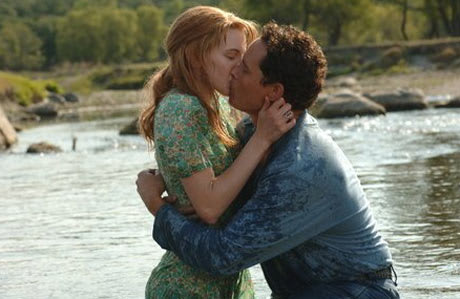Theres a reason Margaret Laurences flagship novel became the CanLit chestnut we know today. For all your groaning over having to read it in high school, its a remarkably complex work. Hagar Shipley goes on her destructive way as she resists convention, marries the wrong man and then makes her children pay for her mistakes. And one begrudgingly admires her for plugging away for the happiness that always eludes her.
But the new movie updated to the present and starring Ellen Burstyn as the older Hagar lacks the ambiguity, carnality and sheer guts of Laurences vision. As with the novel, the film jumps back and forth between the old Hagars encroaching internment in a nursing home and the apparently misspent life leading up to that event, but where the book had an intricate manner of blending past and present, the film is haphazard and clumsy. But the problem is more than technical.
Entrusted with making a movie that will play to a genteel audience, director Kari Skogland has stripped the novel of its most painful elements what was a screaming fury in Laurence is now a blip of disappointment, and the heroines refusal to say die is less the act of a misguided person giving life her all than that of a petty schmuck ripe for judgment.
Its well enough made and Christine Horne does well as Hagars younger incarnation but whats here is unoriginal and offers no personal perspective on the work being rendered.
This is the kind of cinematic gentrification of a literary source that manages to do a disservice to both literature and cinema, making the latter into a medium for the taming of the former.
(Alliance)But the new movie updated to the present and starring Ellen Burstyn as the older Hagar lacks the ambiguity, carnality and sheer guts of Laurences vision. As with the novel, the film jumps back and forth between the old Hagars encroaching internment in a nursing home and the apparently misspent life leading up to that event, but where the book had an intricate manner of blending past and present, the film is haphazard and clumsy. But the problem is more than technical.
Entrusted with making a movie that will play to a genteel audience, director Kari Skogland has stripped the novel of its most painful elements what was a screaming fury in Laurence is now a blip of disappointment, and the heroines refusal to say die is less the act of a misguided person giving life her all than that of a petty schmuck ripe for judgment.
Its well enough made and Christine Horne does well as Hagars younger incarnation but whats here is unoriginal and offers no personal perspective on the work being rendered.
This is the kind of cinematic gentrification of a literary source that manages to do a disservice to both literature and cinema, making the latter into a medium for the taming of the former.
